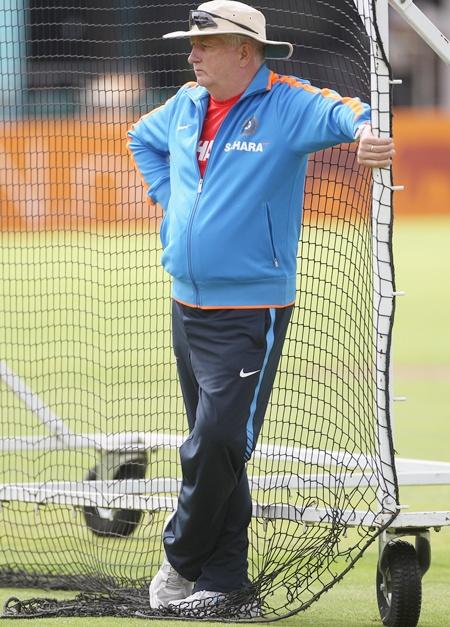
India's coach Duncan Fletcher deserves a Team Director kind of role, with the day-to-day running of Team India in the hands of a younger man, suggests Faisal Shariff.
'From our point of view we have got to offer an apology, we just didn't play well enough out there. We didn't give a total for our bowlers to bowl at. They are very disappointed at the moment.'
- Duncan Fletcher
This was Fletcher on Australia Day in 2007, on January 26, when the England team lost yet again on what was turning out to be a disastrous tour.
England had been whitewashed 0-5 in the Ashes and were losing consistently in the ODI tri-series, also involving New Zealand. Fletcher, on the advice of the `brains trust' with the England team, decided to apologise for losing this ODI at Adelaide even before the lights were turned on.
- ANALYSIS: The curious case of Fletcher
Thereafter, England got on a roll and went home with the tri-series trophy, a small consolation for the Ashes wallop.
But Fletcher didn't leave any stone unturned each time he had an opportunity to get after the opposition. Whether it was keeping the Aussie team waiting in the hotel lobby for hours before they could check into their hotel rooms on landing in England or whether it was forcing the Aussie team bus to stop at the wrong end of the stadium in Bristol.
Contrast this with what is happening with Fletcher in his India role. He has had not one but two whitewashes and several failures in the ODI format and a wash-out in the T20s, but we have still not heard him.
Why? Because he is not allowed to speak!
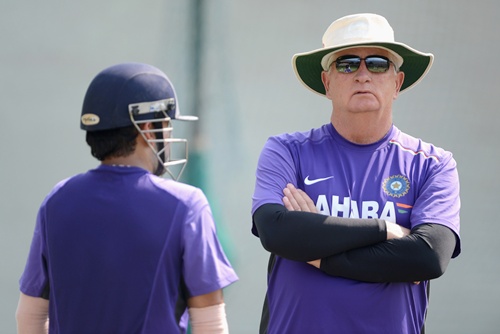
Pressure is quite rightly on Fletcher, but does he have the support internally from the system?
The moot question is: do we really have a system in place?
The Fletcher who coached England was the boss of the team. He had a proper system backing him with a full-fledged cricket operations department, with a full-time team operations manager cracking the whip, and a brains trust working overtime to get the team to win.
What support does Fletcher have in his India role?
Nothing at all! He is all by himself, with his hands tied at the back.
The system, or the lack of it, is the main reason why India is struggling in the Test match format. India has for long depended on personalities rather than a system to carry it through. We had a golden period for a while but, again, it was because of the power of the personalities rather than system itself.
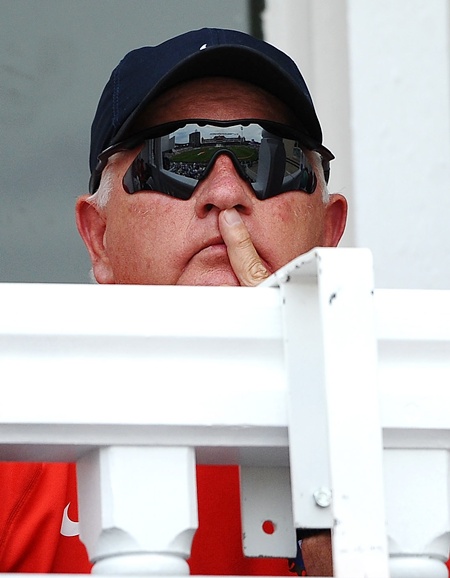
Consider this: the same Fletcher was a quiet but smooth operator in England. He would play mind games galore through his trusted lieutenants on touring teams to England, especially Australia. He just loved getting under the skin of the Aussies.
It was something similar to our own Sourav Ganguly making Steve Waugh wait at the toss in the iconic 2001 series.
Fletcher's advice to the Indian selectors to not let a spinner play in the tour games against England, made old hands in London suggest that the canny man had not lost his touch one bit.
But unlike in England, Fletcher does not have a support system to carry his mind games through. In England, Fletcher had total control over the players. He made sure that England players had central contracts and they were answerable first to him, then to the counties.
Contrast that with India, where players get twichy around March till May because the galaxy of stars is awaiting them.
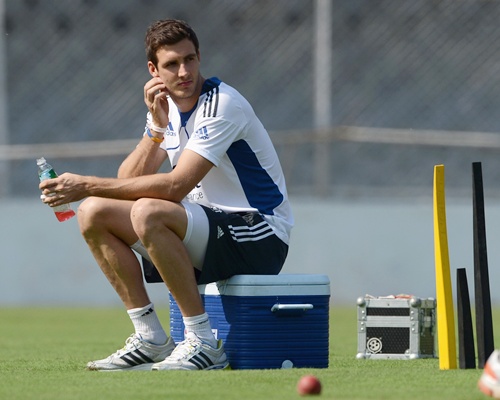
Fletcher's exit from England has seen further streamlining of the team. It is now run as a corporate house with an MD (Hugh Morris), a team director (Andy Flower) and a host of other dedicated specialist coaches backing the system. The England High Performance Centre backs up the team and there is close co-ordination with the national coaching staff.
What is the system in India?
Fletcher, Joe Dawes (bowling coach) and Trevor Penney (fielding coach) with the fitness experts. There is nothing else in between, with the National Cricket Academy almost always functioning as a rehab bureau and having no contact with the national coaching staff.
The biggest example of the difference in the system is in the way the England Performance Programme squad tours the country where the England squads tour and plays matches there.
That's how Steven Finn got to play a three-day game and some valuable match time when the rest of the England squad was resting at Hotel Taj Mahal. What was the 'Indian system' doing? It was fast asleep.
Indian newspapers reported, as gazetted officers, that Finn is fit and has tested his fitness. There was no outrage. A genuine quick bowler was offered the opportunity on a platter to regain fitness and be ready for a crucial Test.
England snatched the initiative and a hapless Fletcher watched helplessly!
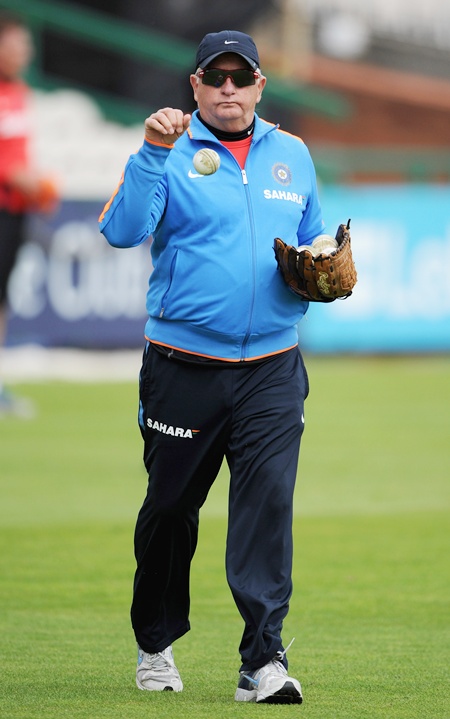
For a man who was once empowered, Fletcher is disenfranchised and hence deserves to be relieved of his role. Fletcher deserves a Team Director kind of role with the day-to-day running of the team being in the hands of a younger man, like a Rahul Dravid.
Instead, Fletcher is left with an unsure captain, uncertain seniors and newbies. John Wright was India's most successful coach in Tests, even more than Gary Kirsten, because he had a core group of cricketers who were at their peak at the same time. The bigger asset for Wright was a great backroom operator in Dravid working away furiously and letting Sourav Ganguly lead from the front.
Sadly, all that is a thing of the past.
P.S: For all those in England, especially the media and the Sky pundits, gloating at India's plight, here are some final thoughts for their humble consideration
a) England suffered three successive whitewashes at the hands of the mighty West Indies in 1984, 1986 and 1988. In fact, Gower suffered Dhoni-esque whitewashes in 1984 and 1986.
b) England did not beat India in a Test series at home and away from 1996 to 2011. That is 15 long years without a Test series win against India!
c) Between 1984-85 and 2005-06, on three tours, England won just one Test in nine attempts, whereas in a similar timeframe India won four Tests between 1986 to 2007 including two series wins in England!
What's that bit about those living in glass houses..?